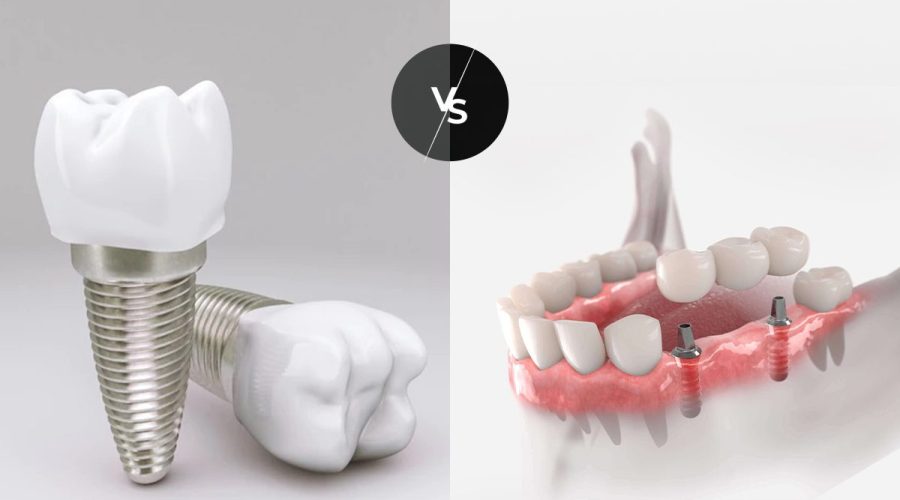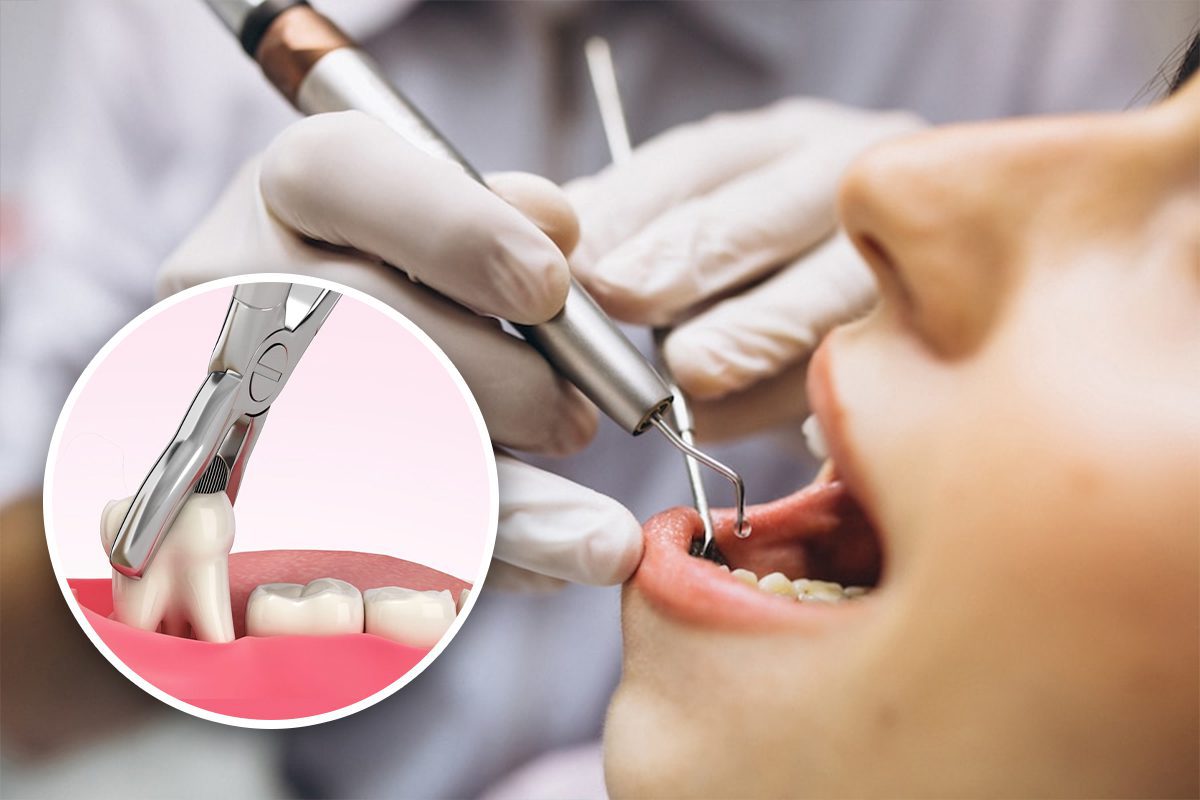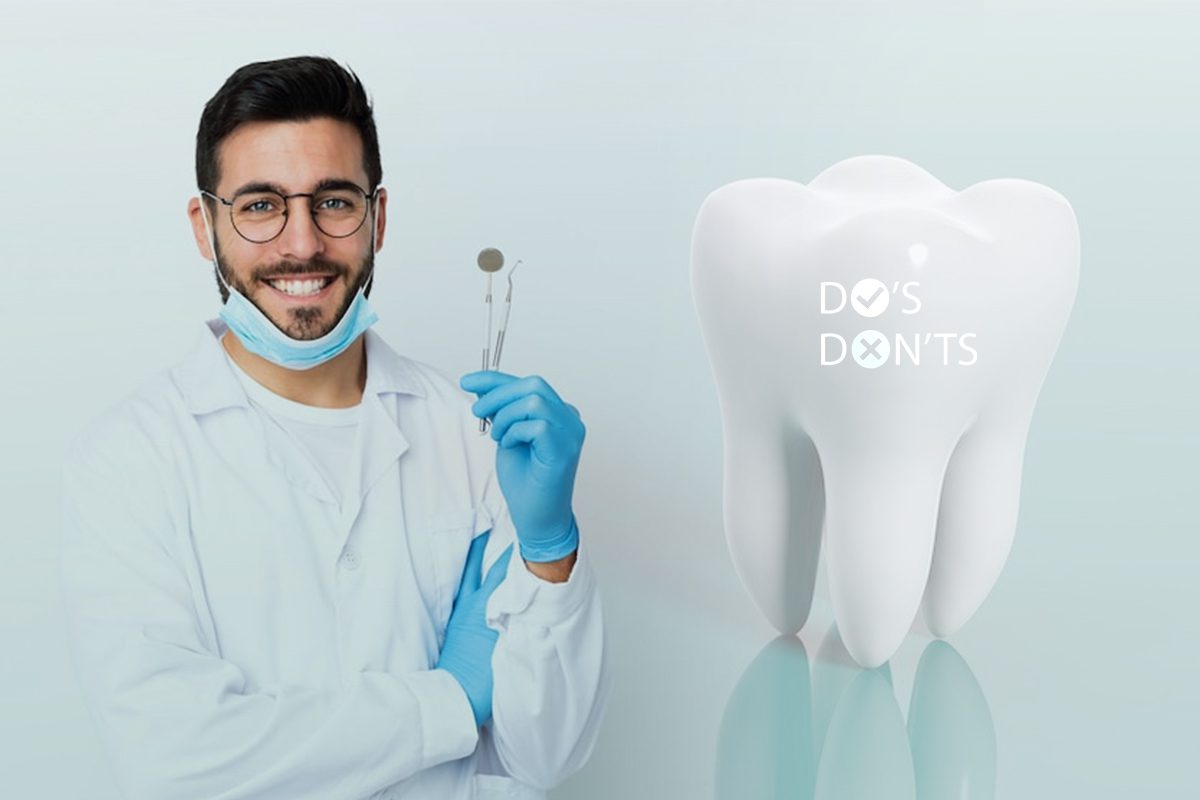After tooth loss or teeth extraction, restoring functionality as soon as possible is important. Missing natural teeth can also negatively affect your self-esteem and confidence since they affect your appearance and speech. Dental implants and bridges are two of the most common solutions to these problems.
In spite of the similar appearance of dental implants in Belgium and bridges, both options are highly different technically. For a successful replacement of your missing teeth, it is important to understand these options in more depth.
What is a bridge?
When you have a missing tooth between two healthy teeth, your dentist may suggest a dental bridge as a restorative option. Dentists cement a dental bridge onto your healthy teeth on either side by suspending a false tooth between two crowns. Designed to match your surrounding teeth, the porcelain matches their color. Dental bridges replace missing teeth and are used to bridge gaps.
Top Tip: Dental bridges may be the best option if you need to replace a tooth or teeth near the back of your mouth.
What is a dental implant?
Typically made of titanium, dental implants replace a missing tooth by attaching an artificial root. Upon receiving a dental implant in Humbeek , the implant bonds to the jawbone (osseointegration), and a protective cover screw is placed on it. In this way, you can create an incredibly stable and durable prosthetic.
Gums naturally grow around this template and shape themselves accordingly. Following osseointegration, a temporary crown replaces the protective cover. Once a permanent one replaces the temporary crown, the process is complete. The process can take as long as six months to complete.
Pros and Cons of Dental Bridges
Pros:
- In most cases, dental insurance covers some or all of the cost of a dental bridge.
- The dental bridge cost is substantially less than the cost of dental implants.
- A bridge can be obtained more quickly and with less time off work.
- Those with bone loss and other complications may benefit from dental bridges.
Cons:
- When properly maintained, dental bridges typically last between five and fifteen years.
- A bridge cannot provide the same strength as a dental implant, resulting in a weak bite.
- The surrounding teeth must be prepared for bridges but not for implant dental.
- Bone loss may continue due to the fact that bridges do not replace the root of the missing tooth.
Pros and Cons of Dental Implants
Pros:
- A dental implant performs almost like a natural tooth due to its strength and durability.
- Having implants restores the strength of your bite and reverses the effects of jawbone loss.
- When it comes to restoring your natural smile, implants are your best option.
- The lifespan of dental implants can be extended with proper maintenance.
- The best option for placing an implant is when a missing tooth is surrounded by decay or weakness.
Cons:
- There is more involved in the process than obtaining a bridge; you can expect to spend more time with us.
- You may need bone grafting before implant placement if you have lost your jawbone.
- The implant cost is higher than that of bridges.
- Insurance companies do not always cover dental implants.
Dental Implants vs. Bridges
Dental implants vs. bridges, Which is better for replacing a missing tooth now that you know the different options?
The majority of dentists prefer dental implants over bridges for a number of reasons. Compared to implants, which can take up to six months, you can get a bridge within a few weeks, but it is a more invasive procedure. By filing down the adjacent teeth, your dentist can bridge the gap.
It is unnecessary to remove those teeth, especially if they are in good health. The new tooth is vulnerable to decay, gum disease, and natural wear and tear while parts of your teeth are still under the bridge. A titanium post is implanted into your jaw with dental implants to address these issues. Dental Implants Grimberegen can also strengthen your jaw bones and prevent bone loss and gum recession over time, proving their aesthetic value. Aside from looking more natural, implants are less noticeable than bridges.
Recovery time and aftercare are also differences between dental implants and bridges. Although both procedures have a relatively fast recovery time, bridges can cause minor discomfort for several days, and it may take a few weeks to get used to your new teeth. Due to the difficulty in flossing and brushing, you need to adopt a more rigorous dental care routine when you have bridges. Unlike implants, which are easier to maintain, you can carry on with your usual routine when it comes to maintaining them.
Factors to Consider When Choosing Between Dental Implants & Bridges
1. Cost
You are more likely to receive dental insurance coverage for a dental bridge than for an implant if you have dental insurance. You may want to talk to a dentist about partial dentures or other options if you don’t have insurance or neither of those options fits within your budget.
2. Number of missing teeth
A dental bridge is better if you miss more than one consecutive tooth. For each missing tooth, a separate implant must be surgically attached to your jawbone, resulting in expensive and inconvenient procedures.
3. Time
Receiving a Dental Implant in Mortsel can take months to be placed, but dental bridges can be put in place in two dental appointments spread out over a couple of weeks.
Your oral surgeon will drill into your jawbone and attach the implant’s root to the bone when you get a dental implant. During the healing process, a temporary denture may be inserted. Once the bone heals, a crown can be placed within two to six months.
Are you a Candidate?
To qualify as a candidate for dental implants and dental bridges, you must meet specific eligibility requirements. A consultation is conducted to determine eligibility for treatment.
The dental implantation procedure must be performed after adolescence, when the bone has fully grown. Potential implant patients will typically undergo X-rays or CT scans to assess bone density and quality and determine whether they have sufficient bone structure to undergo implant surgery. Since smokers are more likely to fail an implant, they must quit in order to qualify as candidates. A person with diabetes, cancer or periodontal disease may also require additional treatment in order to qualify for implantation.
The Health and stability of the supporting teeth are the most important factors in determining bridge candidacy. The relatively less invasive nature of the dental bridge procedure makes it less restrictive than dental implant candidacy. A dental bridge may require additional treatments if your teeth are infected with periodontal disease, decayed, or have chips or cracks.
Final Thoughts: Which Is Better, Bridge Or Implant
Getting the right treatment for your missing tooth begins with talking to your dentist about the options that may be appropriate for you. To make the right recommendation for you, your trusted dentist will carefully weigh all the considerations in your situation to make an informed judgement.
Your dentist will want to provide you with the right solution that will be as gentle as possible while providing years of continued use. Whether you need an affordable dental implant in Antwerp for your missing teeth or want to establish a treatment plan tailored to your requirements- Euro Dent has the best dentists in Belgium ready to assist you. Get in touch with a dentist today to schedule an appointment.




